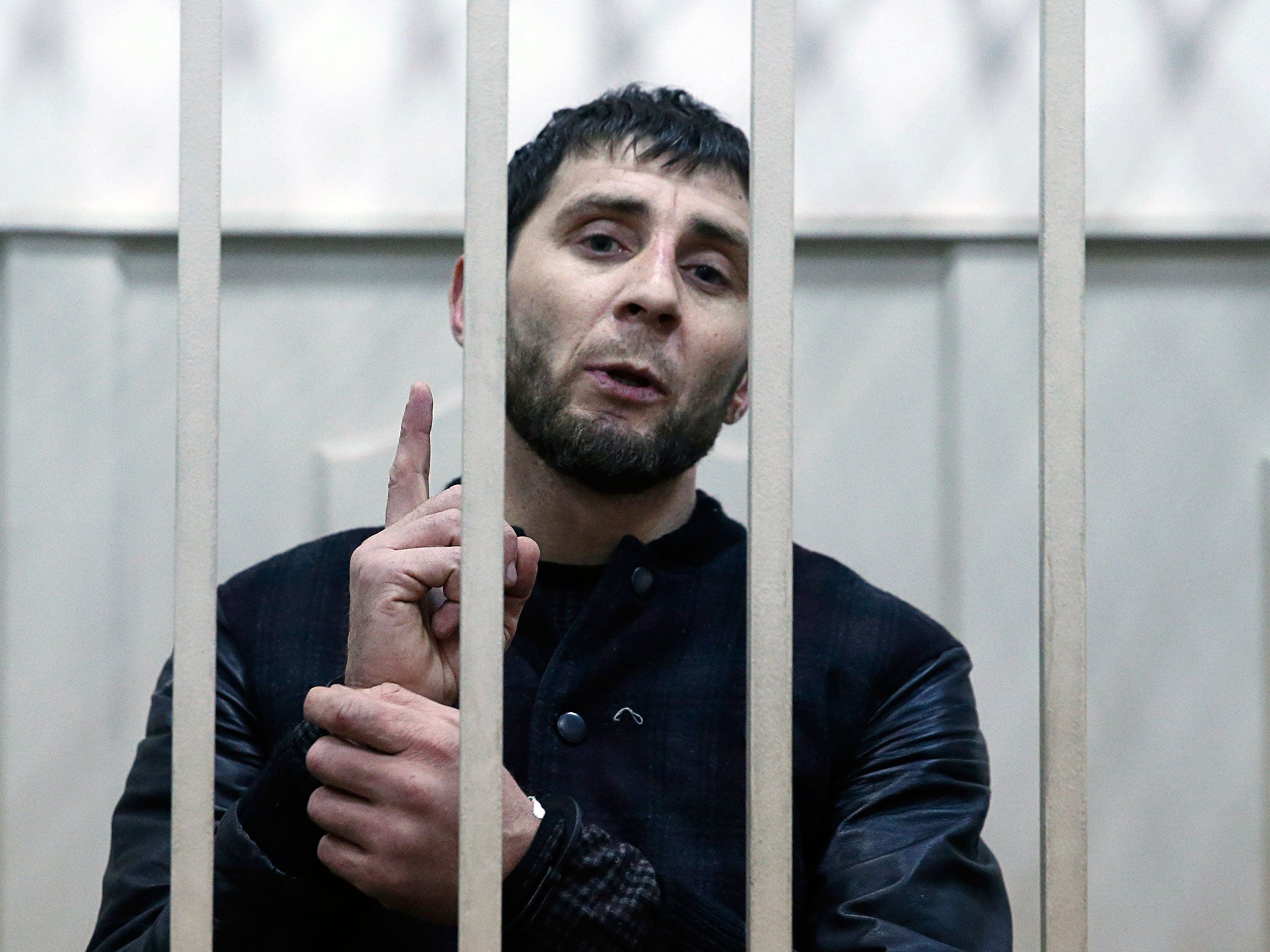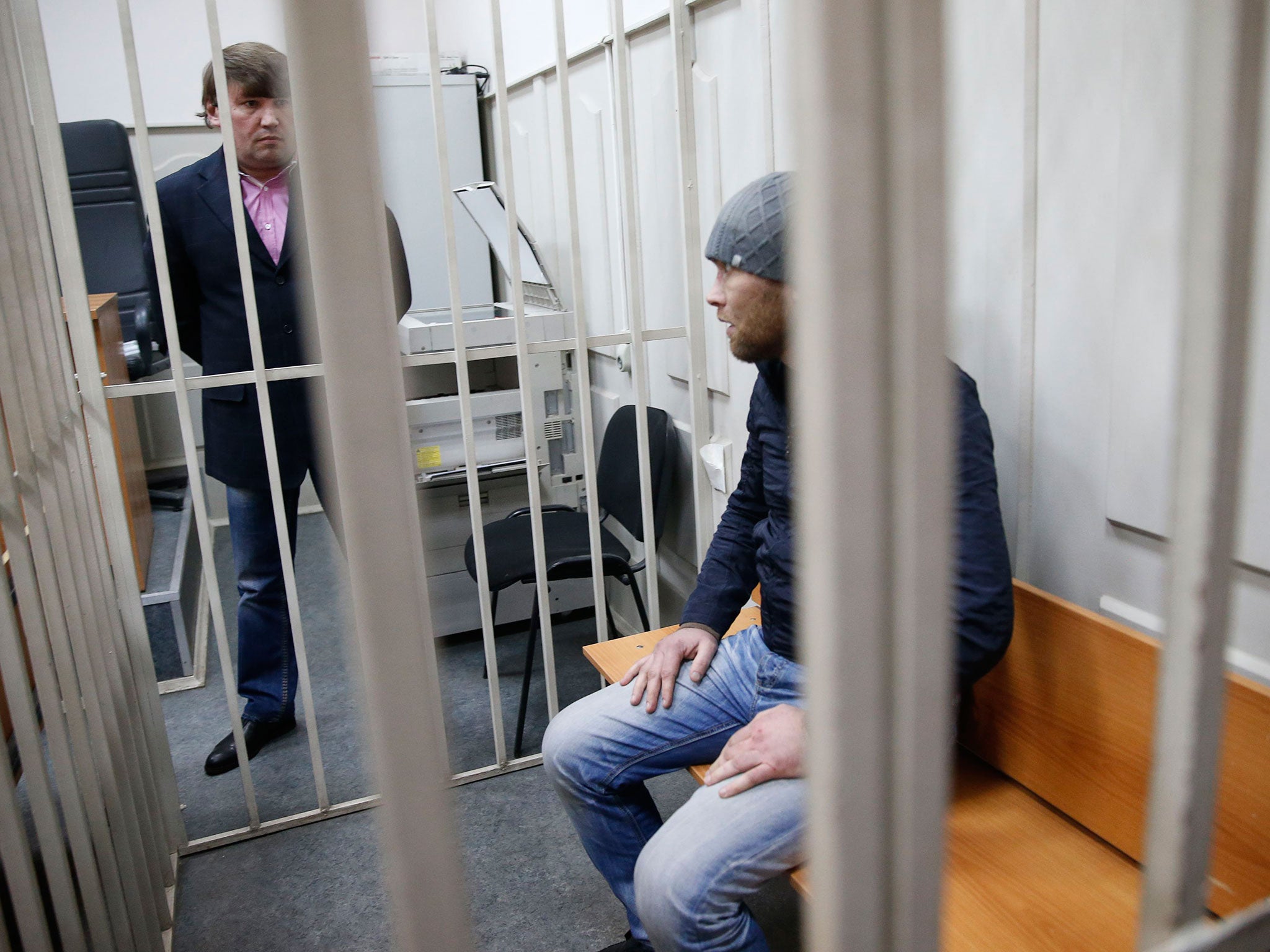Boris Nemtsov killing: Suspect Zaur Dadaev may have confessed after he was tortured, says member of Russia's human rights commission
Human rights activist Andrew Babushkin has said three suspects he visited had suffered multiple injuries

Your support helps us to tell the story
From reproductive rights to climate change to Big Tech, The Independent is on the ground when the story is developing. Whether it's investigating the financials of Elon Musk's pro-Trump PAC or producing our latest documentary, 'The A Word', which shines a light on the American women fighting for reproductive rights, we know how important it is to parse out the facts from the messaging.
At such a critical moment in US history, we need reporters on the ground. Your donation allows us to keep sending journalists to speak to both sides of the story.
The Independent is trusted by Americans across the entire political spectrum. And unlike many other quality news outlets, we choose not to lock Americans out of our reporting and analysis with paywalls. We believe quality journalism should be available to everyone, paid for by those who can afford it.
Your support makes all the difference.A former Chechen policeman accused of the murder of Russian opposition politician Boris Nemtsov may have confessed to the killing after being tortured, a member of Russia's human rights commission has said.
Human rights activist Andrew Babushkin has said three ethnic Chechen suspects accused of the murder, that he visited at Moscow's Lefortovo prison, had suffered multiple injuries.
Mr Babushkin told The Associated Press that Zaur Dadaev, the main suspect in the killing, had abrasions on his body when he visited him on Tuesday.
Five people have been arrested in connection with the shooting of Mr Nemtsov on February 27.
According to a judge, Dadaev, who is being held with his cousins Anzor and Shagid Gubahsev, was the only one who confessed to the killing, though in court he did not admit guilt.

Dadaev and Gubashev have both been formally charged, it has been reported.
"There are reasonable grounds to believe that Dadaev and the Gubashevs were tortured," Babushkin has written on his website, the Reuters news agency reported.
He said Dadaev had "multiple injuries" which were visible on his body.
Anzor Gubashev meanwhile had abrasions around his nose, wrists and legs apparently incurred following his detention.

Mr Babushin told The Associated Press that Dadaev had been "tortured by those who detained him" before being taken to the Investigative Committee, where "he was forced to confess".
Investigators have not confirmed or denied Mr Babushkin's accusations. They have said however that he may have broken the law by making the comments.
The commission to which Mr Babushkin belongs is an unofficial advisory body to President Vladimir Putin.
Although it operates under the auspices of the Kremlin, many of its members are activists with careers in human rights in Russia which have lasted for decades.
Russia's Investigative Committee has said Mr Babushkin and a journalist had been allowed to visit the prison cell where Dadaev was being held in order to see the conditions. It said he had broken the law by publicising details about the case.
In a statement, the committee said: "Such actions may be regarded as interference in the investigation."
It said both Mr Babushkin and the journalist would be questioned by investigators.
It did not confirm or deny the claims made by Mr Babushkin that Dadaev had been mistreated.
In an interview published in the Moskovsky Kosomolets newspaper, by journalist Eva Merkacheva, Dadaev claims he had been detained with a bag over his head for two days.
He was quoted as saying: "They shouted at me all the time: 'Have you killed Nemtsov?' I told them, 'No'."
According to the account given by Mr Babushkin, Dadaev had been promised that if he admitted to the murder of Nemtsov, his friend, who was with him when he was detained, would be released.
Mr Babushkin has called on the human rights council to inform Mr Putin of his findings and said law enforcement agencies should investigate the allegations.
Dadaev served as deputy commander of Chechnya's "North" Battalion.
He has been awarded Russia's state order for courage for his service in Chechnya, a North Caucasus region where Russian troops have fought two wars against separatists.
Additional reporting by AP and Reuters
Join our commenting forum
Join thought-provoking conversations, follow other Independent readers and see their replies
Comments